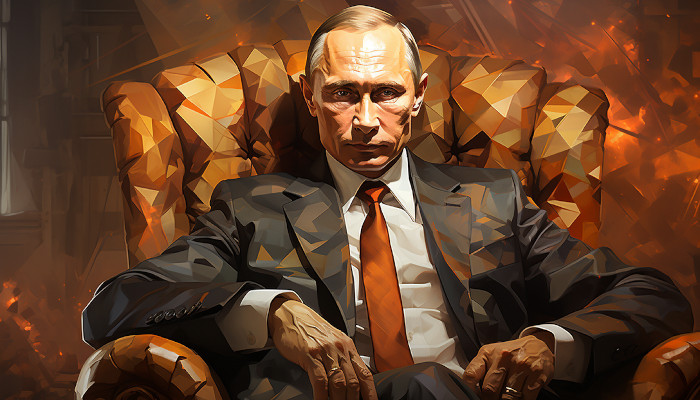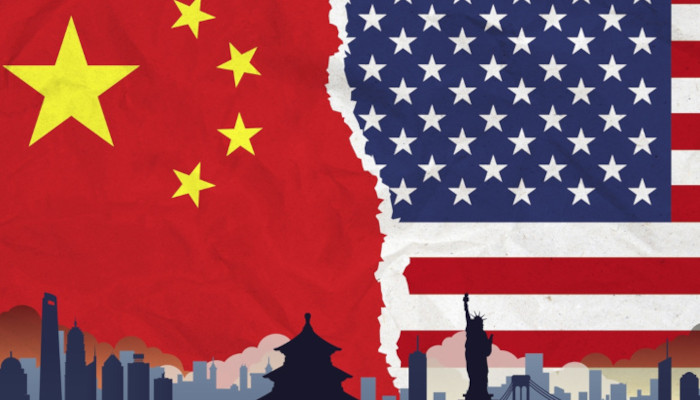
The Russian president’s trip to North Korea alters global calculations, spreading instability worldwide. Even China may now be interested in distancing itself from him
Shortly after establishing the People’s Republic of China (PRC) on October 1st, 1949, China entered one of its most controversial historical periods. PRC leader Mao Zedong planned to attack Taiwan, where Chiang Kai-shek’s remnant nationalist forces (KMT) had escaped. Distrusting Mao, possibly due to his years of talks with the Americans, Stalin pushed Mao to intervene in the Korean War in the late 1950s. Chinese troops fought the Americans, drove them back, and created the conditions for a stalemate and truce that holds to this day.
Chinese intervention, however, prompted the US to deploy its fleet in the Taiwan Strait, making the “liberation of Taiwan” impossible and turning it into the most annoying thorn in Beijing’s foreign policy ever since.
Many historians still debate why Mao moved troops to Korea, and many theories exist. But undoubtedly, the Russians were instrumental in that decision. Stalin distrusted Mao but provided Soviet equipment and possibly even Soviet troops to help the Communists defeat the KMT in 1949. Stalin wanted to drive a wedge between Mao and the US to ensure North Korea’s survival. Mao gave up on Taiwan to secure Soviet support during a critical moment for China and received the troublesome North Korea instead.
In the early 2000s, when ties with the US were uncertain, but many in Beijing still sought an avenue forward with Washington, the influential Chinese journal Strategy and Management floated the idea that Chinese troops might help push North Korea towards real peace talks. In return, the US could grant better terms to the PRC about Taiwan. North Korea allegedly protested viciously against the article and demanded the journal’s closure. Beijing, fearing further escalations, complied.
With other means and instruments, Russian President Vladimir Putin now seems keen on drawing China closer and pushing it further away from the US. The times are very different, and Russia is much weaker than China, but the result may be similar to 74 years ago – pushing Beijing farther from Washington. The Chinese position on North Korea could be crucial once again.
Since the beginning of the war in Ukraine in February 2022, Russia has tried to rope Beijing in. Initially, Beijing may have believed in an easy Russian victory. When that didn’t materialize, Beijing attempted to maintain a certain distance. Even the present arguments with the US over Ukraine show that China’s position is not entirely on Russia’s side. China emphasizes that it is not directly contravening US requests (such as not selling weapons to Russia). However, the US argues that China is aiding Russia’s military re-industrialization and that its banks support Moscow’s finances.
Yet Putin’s visit to Pyongyang changes all metrics.
According to senior Asian diplomats, Russia and North Korea signed a robust military agreement resembling the one they had eight decades ago. There is powerful language there. Where does it leave China? Will it support and perhaps join the alliance, further souring ties with the West, or will it try to break free from the embrace?
Indeed, the new alliance gave North Korea more wiggling room from China’s pervasive control, which existed before the Ukraine war. The alliance tilted the Korean peninsula’s power balance against South Korea. Seoul will need to take rebalancing measures that will escalate the situation. This evolution escapes PRC sway.
North Korean leader Kim Jong-un also has plans of his own. During Putin’s visit to Pyongyang, he skipped the previously customary homage to Kim’s father and grandfather. Moreover, Kim announced that his daughter would inherit his “throne,” breaking tradition. These elements could indicate his intentions to move in new directions. The 74-year-old truce may be in jeopardy.
It is bad news for China, but it also changes Western and American calculations about Putin. So far, some American analysts have wanted to safeguard Russia to keep Central Asia from buckling under China’s pressure and possibly convince Putin to flip against Beijing.
However, perhaps the strategy may be too convoluted. It is backfiring, giving Putin too many tools to play.
If the Iraqi War Had Been Different
In 2003, the US had taken control of Afghanistan and was about to move into Iraq. If the USA had just replaced Saddam Hussein with someone else and supported one Afghan tribe or group without too much internal meddling, it would have established presences in both places for control of essential Eurasian communication routes. If its light-handed approach had also been coupled with long-term assistance in improving education, there could have been significant changes in both places by now.
Incidentally, the American presence in Afghanistan and Iraq, by showing the area’s strategic importance, contributed to convincing China about the Belt and Road initiative (BRI) in the following decade.
In turn, it could have shown China, then on the fence about its future, the USA’s strength and foresight and helped move Beijing towards reform. And even if Beijing had carried on without reforms, the US would now be stronger with Iraq and Afghanistan and could have played a different game with China, gaining greater global clout over time. Putin might also have acted differently in subsequent years.
Now, the USA is in challenging circumstances. The USA needs to consolidate difficult positions. While Putin has politically lost the war in Ukraine and has been unable to break Ukrainian resistance militarily, he remains a political genius who has spread his strategic footprint worldwide. He has progressively lured China away from the US, moved aggressively in Africa, supported Iran and Hamas against Israel, and drums up politicians and businessmen in Europe to help him. Now, he has secured North Korea’s iron-clad assistance, involving South Korea and Japan (worried about an emboldened Kim) in the Ukrainian war.
The thinking in Beijing was that China could relax relatively as long as the Ukrainian war was ongoing because the US was distracted by it. That is no longer the case.
China is being played like a pawn with diminishing breathing space in this game. Unless China breaks Russia’s embrace, it will become an instrument in a Russian sport it can’t control. Independent of its frictions and concerns about the US and its neighbors, China is not gaining the support it needs from Russia; it is only acquiring new complications from its troubles.
It’s like the 1950s all over again; Moscow is trapping Beijing. Mao couldn’t break free. Will his successor, President Xi Jinping, manage it? Does he want to? Now more than ever, America is primarily against China, making choosing a different path trying. Besides, thought processes, like physical movements, have inertia, and for China to realize it is being trapped by Russia and react accordingly wouldn’t be easy.
In this situation, Putin is a wild card, disrupting the global order to an unprecedented degree. He should be cornered as soon as possible. The longer he roams freely, the more significant the disruption. Even the possibility that he might taunt the West about flipping over to China produces more danger than before.
He is too duplicitous, never keeps his word, and is impossible to trust. His political presence makes everything confusing for middle- to long-term strategies.
Cornering Putin doesn’t come free of charge; it has possible repercussions but helps to clear the path ahead. It keeps China in the game, opening up potential political and economic solutions. It secures Europe, wiping out Russia’s area of interest, which can mess things up in America, the Middle East, and Asia.










Mettere Putin spalle al muro - SettimanaNews